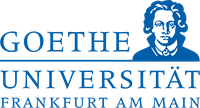Zusammenfassung
- Was Stellenangebot — Doctoral Researcher Positions
- Wann to (Europe/Berlin / UTC200)
- Wo Frankfurt (Main) — Deutschland
- URL https://fixingfutures.eu/2024/07/pre-announcement-new-doctoral-researcher-positions-rtg-fixing-futures/
- Termin herunterladen iCal Datei herunterladen
Beschreibung
DFG-funded Research Training Group "Fixing Futures: Technologies of Anticipation in Contemporary Societies"
The research training group is located at Goethe University Frankfurt. It offers
8 Doctoral Researcher Positions
(TV-L E13, 75% part-time), starting 01.05.2025.
The application must contain:
- a cover letter in which applicants describe themselves and their motivation,
- the completed application form,
- a curriculum vitae (CV),
- copies of grade certificates / university degree (translated if not in German or English),
- two names of professors who are able to provide information about the candidate’s scientific potential, personal eligibility for a PhD position in a Research Training Group, thematic fit and competencies in empirical research methods
- a research proposal (of max. 2000 words plus references and ½ page abstract) which relates to the research programme of “Fixing Futures”. Please make sure to be familiar with the programme description available on fixingfutures.eu. Your envisaged dissertation project may relate to one research area (governance, economies, or life but projects can also address more than one research area).
Your research proposal should refer to the following:
- Topic and brief description of your project and main research question; explanationhow your research project relates to the Research Training Group programme and contributes to research on technologies of anticipation.
- Outline of relevant theories / background concepts and a selected overview overexisting research in the field and own previous work (where relevant).
- Work programme: objectives and study design of your research project;methodology and research methods.
- Work plan: Show how your project could be organised and realised within fouryears.
Applications must be sent via email to the Dean of the Faculty of Social Sciences at Goethe University Frankfurt, e-mail: dekanat.fb03-bewerbungen[ at ]soz.uni-frankfurt.de.
Send your application by 26.11.2024 in one email, with all documents attached in one pdf file with the file name containing your second name. Please state the reference number 28/2024 in your application.
Assessment criteria and selection procedure
In accordance with the regulations in the three participating faculties, doctoral researchers must possess the following qualifications, in order to be considered:
- a very good Master’s degree in STS, human geography, cultural anthropology, sociology or a neighbouring discipline;
- good methodological skills and research experience (e.g. as a student assistant in projects and/or through empirical qualification work);
- a depth of knowledge in at least one research area (economies, governance, life);
- very good skills in spoken and written English; (e) ability and willingness to work in a team.
Interviews with candidates whose applications have been shortlisted will take place on 14. January and 15. January 2025 in Frankfurt (depending on the distance of travel, visa requirements, family responsibilities, financial situation, etc. online interviews may be organised). Please make sure that you will be available during these two days. Unfortunately Goethe University cannot reimburse travel costs for the interviews.
Successful candidates will be allocated two supervisors. The final composition of the supervision team can change during the first year. Doctoral researchers will sign a supervision agreement with two professors involved in the Research Training Group in accordance with the PhD regulations of the Goethe University.
Doctoral positions are part time positions (75%), funded by the DFG, and limited to the period of 4 years. The salary is according to TV-L E 13 and varies according to prior job experience; level 1 applies for persons without prior academic job experience in Germany. The limitation of contracts is in line with the ‘Wissenschaftszeitvertragsgesetz’ that regulates employment of early career researchers in Germany.
Kontakt
Dokumente senden an
dekanat.fb03-bewerbungen[ at ]soz.uni-frankfurt.de

